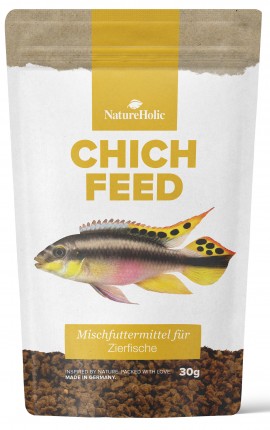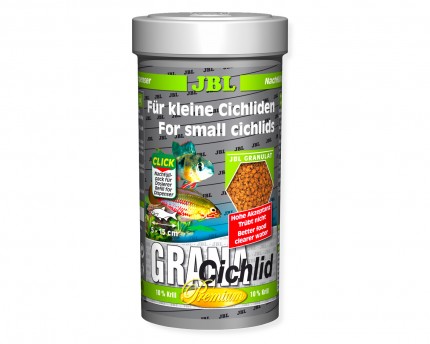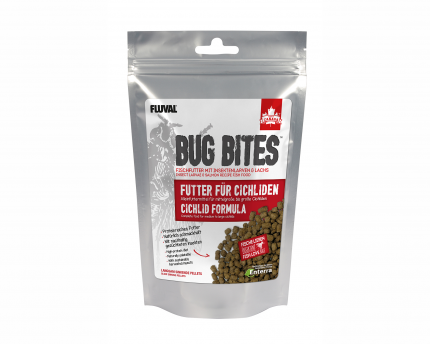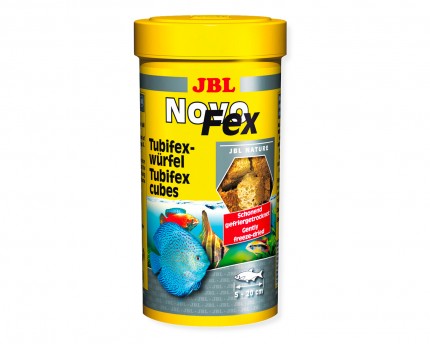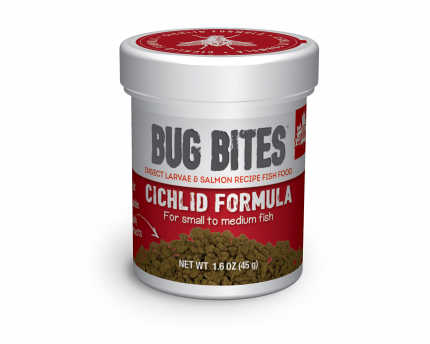Many cichlids come from the East African lakes (Lake Malawi, Lake Tanganyika), but also from South America. The group of cichlids is quite inconsistent in terms of feeding habits. Among the cichlids there are both pronounced carnivores, omnivores and pure herbivores, which only eat the small crustaceans in the algae growth besides and have to be considered predominantly as vegetarians.
Many South American cichlids belong to the predatory, carnivorous cichlids. Besides the impressive angelfishes, the popular colorful discus fishes should be mentioned here, of course, but also the Oscar (Astronotus ocellatus), all the Apistogramma species, Heros, Geophagus species and many more. Also many cichlids from the East African lakes, for example the Tanganyika bulgehead, also called Frontosa, the genera Lamprologus and Altolamprologus, also from Lake Tanganyika, and the species from the genera Aulonocara, Nimbochromis and Placidochromis from Lake Malawi or others the genus Haplochromis from Lake Victoria, are predatory carnivores. Cichlids from West Africa, for example the genus Hemichromis and the genus Tilapia, also belong to this group.
All of these cichlids require a predominantly carnivorous diet, and when selecting food you should make sure that the protein comes from aquatic animals such as crustaceans and fish, and that the pieces of food are adapted to the size of the fish. A small amount of vegetable content simulates the gut contents of prey animals and is necessary for the health of the fish.
Herbivores include many of the so-called mbuna cichlids (various species from the genus Labidochromis and Cynotilapia, but also Pseudotropheus and others more) from Lake Malawi, but also, for example, the genus Petrochromis from Lake Tanganyika. These cichlids live between stones and rocks and feed in the biotope mainly on algae and other growth there. A small amount of small crustaceans and other small creatures sitting in the growth is part of their natural food spectrum, therefore the food for herbivorous cichlids should not consist exclusively of plants.
Then there are also the omnivores among the cichlids. For them, a mixed diet of food for carnivorous and for herbivorous cichlids is recommended - whether food sticks of both types are given daily or alternated day after day is up to the aquarist.

